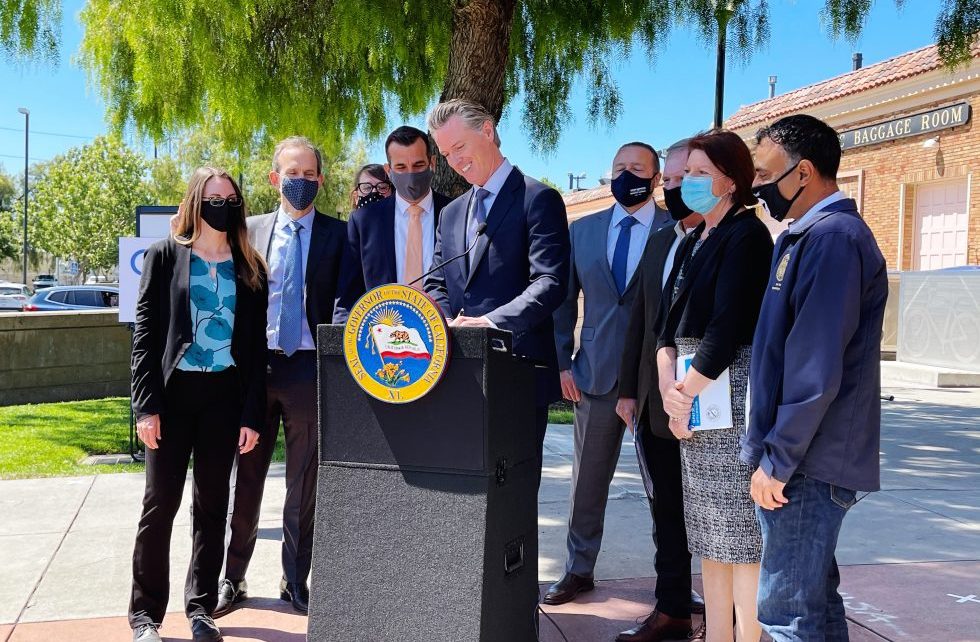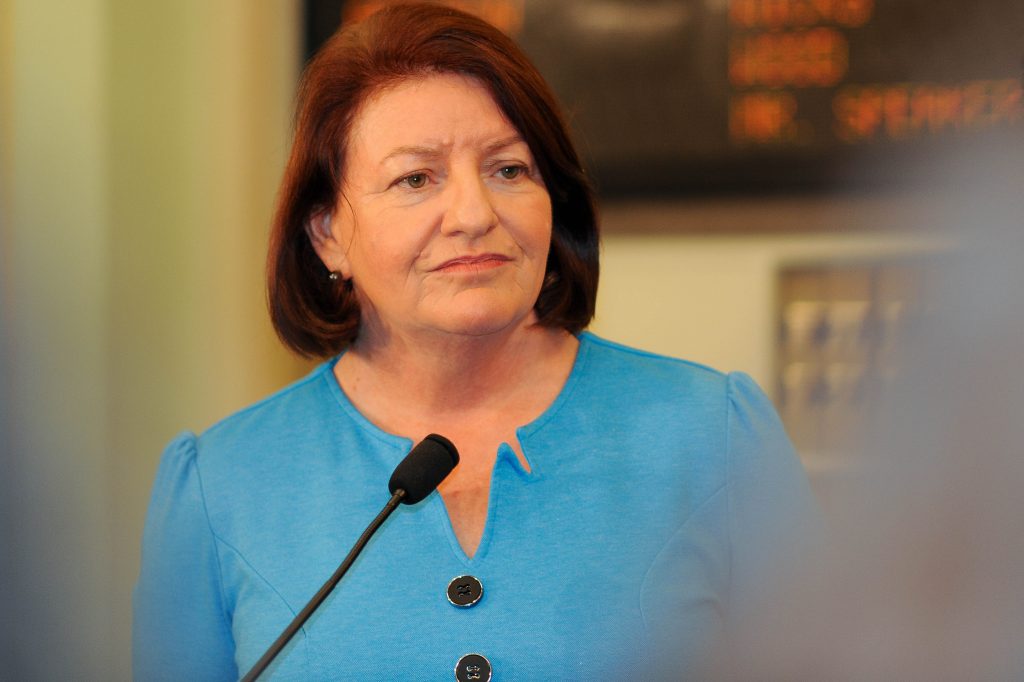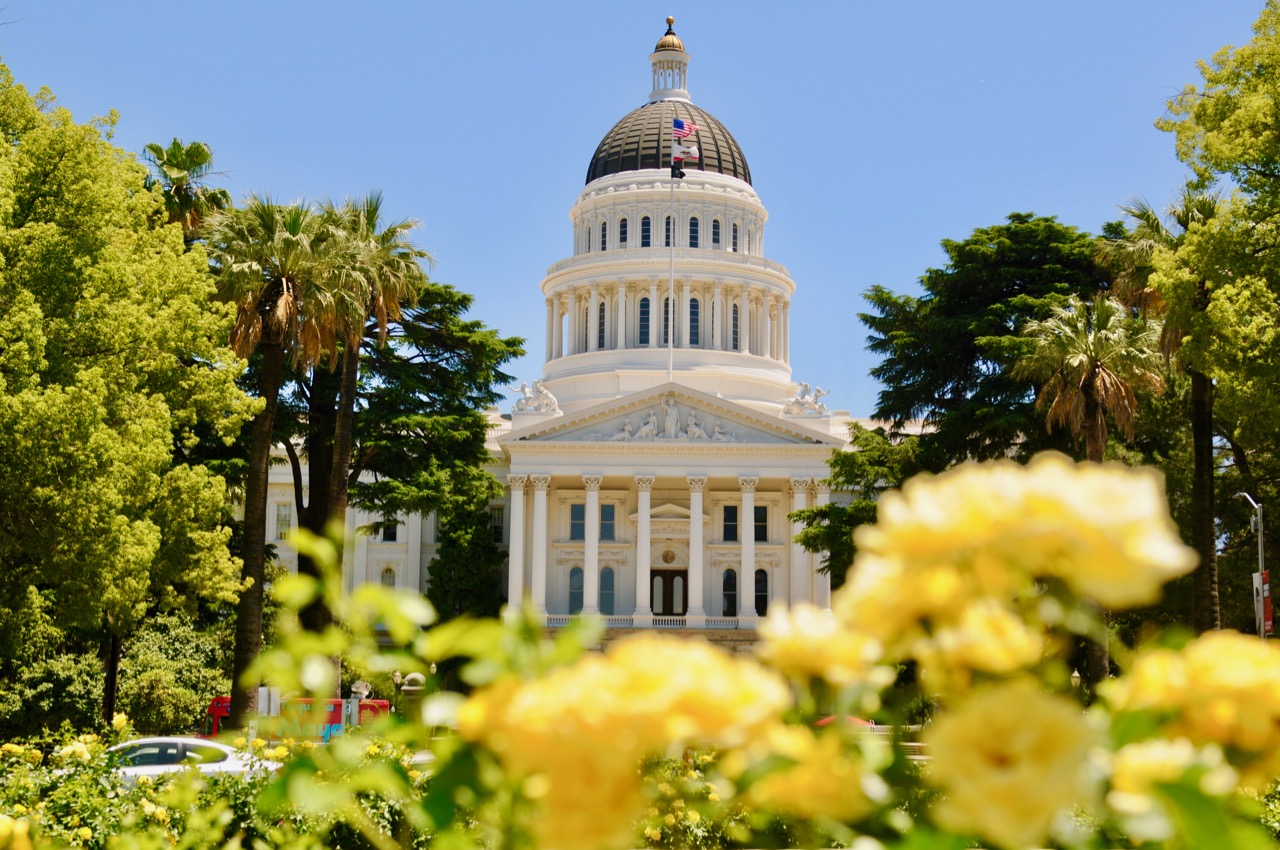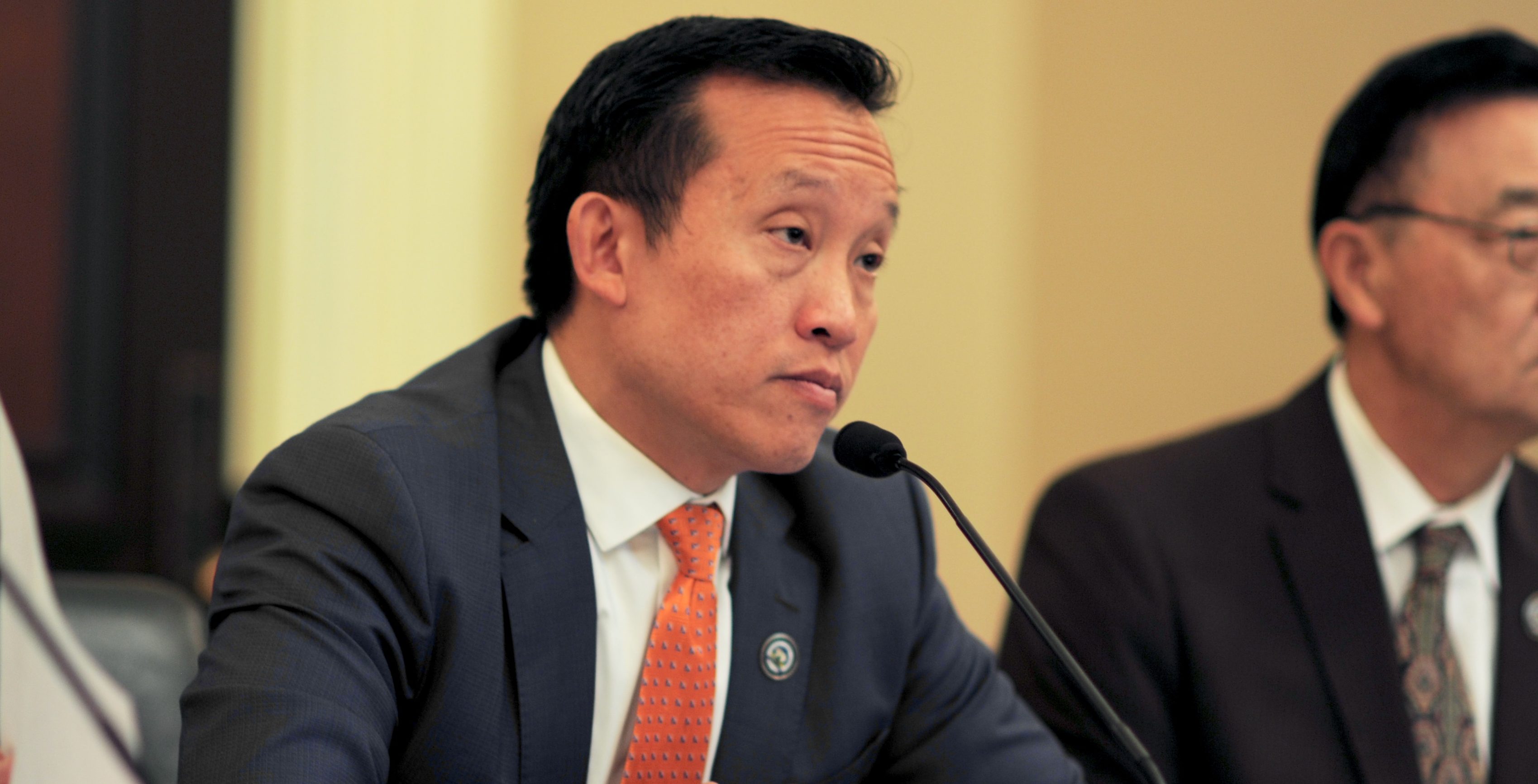
Governor Newsom signs SB 7 into law on May 20, 2021 in San Jose. (Photo:Gov.ca.gov)
Gov. Newsom Signs Expedited CEQA Building Project Review Bill Into Law
SB 7 will reduce CEQA expedited project minimum from $100 million to $15 million
By Evan Symon, May 21, 2021 2:10 am
Governor Gavin Newsom signed a bill into law on Thursday that will extend expedited California Environmental Quality Act (CEQA) building project reviews to small scale projects.
Senate Bill 7, authored by Senator Toni Atkins (D-San Diego) would specifically extends the provisions made in the 2011-passed AB 900 law, which expedited CEQA review for housing, energy, and manufacturing projects that cost more than $100 million. Though set to expire this year, SB 7 will now expand CEQA expedited approvals through 2025. The bill, also known as the Jobs and Economic Improvement Through Environmental Leadership Act of 2021, would also lower minimum for a qualified project from $100 million to $15 million as long as 15% of the project is set aside for affordable housing and is an infill project on vacant or unutilized land.
SB 7 would also allow for quicker turn-around times for building smaller-scale housing projects in the state by expediting legal challenges of the projects and reducing the paperwork required for qualified projects.
Senator Atkins wrote the bill to allow for more environmentally-friendly buildings to be built, as well as to add more construction jobs, add additional affordable housing and to help alleviate the housing crisis.

“This bill is a win for the environment, the economy, and California as a whole,” said Senator Atkins on Thursday. “It speeds up the costly and time-consuming review process without compromising California’s strict environmental standards. With our economy in recovery mode from the impacts of COVID, high-wage jobs are needed, and this bill meets that demand. Now, shovel-ready, economic development projects will get started sooner, putting people to work and providing transformative change to communities across the state that are in need of jobs and housing. I’m appreciative to Governor Newsom and my Senate and Assembly colleagues for seeing the value of this legislation, and to Speaker Rendon for expediting this legislation – this bill is going to make a real difference for our state and the people who call it home.”
At the bill signing on Thursday in San Jose, which doubled as an event to help push forward the final hurdle in San Jose City Council next week to allow the construction of Google’s proposed South Bay Campus, Governor Newsom and other supporters praised the bill for similar reasons.
“California’s recovery from the pandemic must tackle the housing shortage that threatens our economic growth and long-term prosperity,” stated Governor Newsom after signing SB 7 into law. “Cutting red tape to save time and remove barriers to production helps us meet the urgent need for more housing while creating good jobs and preserving important environmental review.”
San Jose Mayor Sam Liccardo noted that the bill’s passage will help California recover quicker from the COVID-19 pandemic.
“SB 7 will enable San Jose’s transformative Downtown West project to move forward –bringing thousands of units of affordable housing and tens of thousands of jobs to our city – during a time our community needs it the most,” said Mayor Liccardo. “I am grateful for Governor Newsom’s leadership as we work towards California’s recovery, and to the rest of the legislature for their support of this important legislation.”
Critics vocalize drawbacks of SB 7
Despite being passed unanimously in the Senate and nearly unanimously in the Assembly earlier this year, the signing was denounced by many on Thursday over the bill allowing state law to supersede local needs and wants.
“This is very much a YIMBY bill,” remarked Penny Hewitt, a developer liaison to city councils and planning departments, to the Globe. “And there is nothing wrong with wanting new construction, especially when done responsibly in areas that can handle these types of developments. In fact, allowing for smaller and less dense buildings will probably make many cities a lot more open to new construction because of traffic and other concerns being reduced due to fewer people going to the proposed building in question.”
“But AB 900, and now SB 7, makes it hard for cities to say no. If it meets the state’s criteria, and all other regulations are being followed, it makes it really hard for cities to say no. Many places don’t want taller buildings or having a lot of affordable units to open up at once because some people see that as unsightly or reducing housing values, but the counter now is that the buildings can be significantly reduced with SB 7, and the buildings allowing young professionals to have a starter apartment in the building in the affordable units.”
“But the big thing is that the bill makes it even harder for cities to put in a challenge. With small buildings now being covered, a lot of arguments go out the window because they can just scale it back or take off a few floors and still come in above the $15 million minimum.”
“What SB 7 will really do is get cities, especially citizen groups in those cities, well versed on reducing proposed developments down to the smallest they can possibly be. That means lowering the buildings, adding additional green space, reducing parking, allowing for the protection of large trees on the site, more eyesore reductions, and a lot of other things.”
“After 2011, we saw a huge jump in developments being bitterly fought over in city halls and conference rooms across the state due to AB 900 and CEQA. It’s only going to get worse now. Lawmakers think they’re getting more from this because of the new requirements, but in reality all it does is give people opposing these developments a lot more to leverage with. You know how in WWI they fought in the trenches for several feet of land in a day? That’s going to be the same mentality of city meetings over a lot of these projects in the next several years.”
“And as anyone who has ever gone to a city zoning meeting will tell you, people get passionate very quickly. So any public meeting over these buildings are going to get bogged down, especially from public comment. That’s the future right now.”
Other bills that would expand affordable housing in California are currently being debates in legislative committees.
- ‘Fix Prop 47’ Initiative Receives Over 900,000 Signatures – Qualifies for November Ballot - April 18, 2024
- Google Fires 28 for Anti-Israel Sit-in at Work - April 18, 2024
- California Retains Title As World’s 5th Largest Economy - April 18, 2024





sounds like follow the money mixed with agenda 2030 (formerly 21)
more density
You’re not kidding, Orwellianism….GOOGLE.
How about we put affordable housing in Marin and Black Hawk and Napa? Why do wealthy areas get skipped over, don’t these rich democrats want to live next to their precious low income poc?
No, Jay. Those Democrats want to live together in their gated estates while the proletariat (us) are huddled in our tiny hovels. But there IS hope for us, because we have the example of the Soviet Union’s collapse.
Looks like Newsom, who is scared to death of being recalled, is dying to say he is “solving the housing crisis.” You know, whether it helps or not (NOT), he can SAY it, point to it, wrap his incomprehensible jargon around it. That’s his M.O. And wow, they are really itching to build those stack-and-pack rabbit hutches for us lab rats, aren’t they? Another token effort which doesn’t put a dent in the “housing crisis.” And where is all this money to build “environmentally-friendly” and “affordable housing” coming from, anyway? “Green” housing and “affordable” housing are EXPENSIVE. Will the state be subsidizing these projects and the developers, who lately seem to always be benefiting from the Gov and the Dem legislators?
Poxed Neanderthals
You’re expendable and high density housing will suddenly end it all for you…..
The feel good con game: issue high interest bonds, nontaxable, to rich greedy globalist types, use their dirty invested money for shiny new, high density, government guaranteed, Section 8 housing….. crime, drug cocktails, mayhem, death instantly in the neighborhood, hire the starreee eyed social community workers, burly neutered cops hunch shoulders and declare permanent “no go” zones…..surrounding properties become Baltimore-esqe.
NEXT.
Well now let’s add a 15 percent global tax brought to you by Joe and the U.N. that will be used for project 2030,I’m sure the unions and dematards will come up with another tax to not be outdone by the global tax.
Redistributed
Nothing better than nowhere to hide……no need to stop at 15%, just go for it all.
Every year, there is one of these “CEQA Reform” bills that seeks to speed things up. It never happens in reality thanks to the lawyers, the activists, and bureaucracy. If one really wanted to reform CEQA, start with limiting legal standing to file a lawsuit. Right now, anyone can sue any project for any reason.